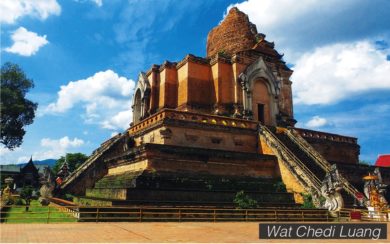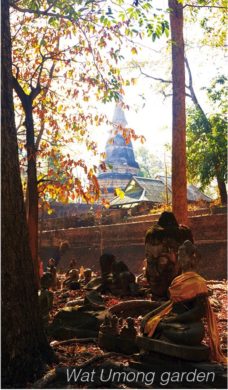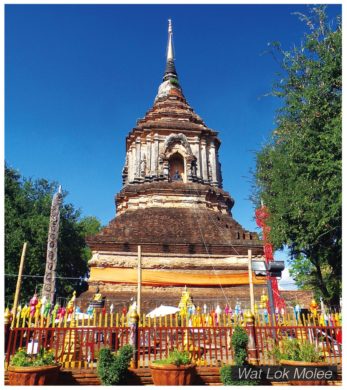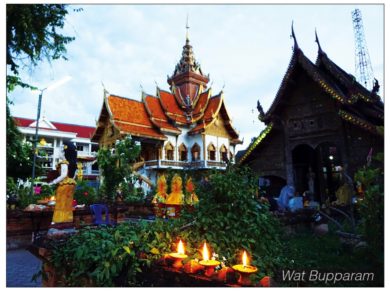Klong Toey Slum: A community you should know when you come to Thailand
Hidden away in the centre of Bangkok is a project that focuses on the underprivileged, underpaid and under housed Thai’s living in extreme poverty. One foundation has worked to change that and here, it’s founder Prateep Unsongtham Hata explains how it began, where it is today and where they hope to change lives in Bangkok.
Living in Thailand offers an opportunity to explore interesting culture, food and landmark places, as well as to travel to palaces and temples and serene national parks. However, if you wish to understand another side of life in Thai society, we have a place which you should experience right in the heart of Bangkok, the capital city of Thailand.
““Klong Toey Slum” is considered the largest poor community in the country, housing 25,000 families with 4 members each on average. Overall, the population is around 100,000 individuals.”
Here, low wage labourers flock in to find shelter for themselves and their family on land belonging to the Port Authority of Thailand (PAT), located in the Klong Toey district. The place is famously known as the “Klong Toey slum”. It is considered the largest poor community in the country, housing 25,000 families with 4 members each on average. Overall, the population is around 100,000 individuals. More than sixty years ago, the PAT embarked on a port expansion project to facilitate technological imports from abroad and the export of Thai produce. The project absorbed a tremendous number of labourers from the rural parts of the country whose domestic farming had failed to provide for their families. Some families ran into household debts when their crops could not yield any income. Low wage labourers from the Klong Toey area, as well as those who migrated from the countryside, have made some part of 3,000 rai of empty land adjacent to the PAT their home ever since.
“duang Prateep Foundation is one organisation representing the voice of the poor. We have a mission to solve social problems.”
Thai people are normally generous. We donate to the temple and give money to beggars. However, underprivileged people in the slum are seen as troublemakers. Some see the place as a scandalous spot for crime and drug dealing, even though such things can occur anywhere in the country. However, we have a helpful community here. Duang Prateep Foundation is one organisation representing the voice of the poor. We have a mission to solve social problems. Our first mission was to achieve the right for the children born in the slum to access schooling, despite not having birth certificates because their families had no official house registration (they were squatters).
“We opened the “One Baht a day School” however, if the parents didn’t have any money, we did not turn the child away.”
 In 1968, my sister, Mingporn, and I opened a class for children in the slum to help them learn how to read and write. We utilised the living space under our family’s traditional Thai stilt house. We also called on the government to help solve children’s education problems in community. There were no schools for children in the community, and other facilities for poor people in slum were almost non existent. They were to request government service to improve living standards. These interwoven problems were like a shoelace that knots over and over. We opened a school for kindergarten age kids up to the primary level because many slum children didn’t have suitable documentation, and they couldn’t study in government schools (they were classed as illegal citizens). At our school, parents were asked to pay 1 Baht every day for their child to study, thus giving it the name “One Baht a day school”. However, if the parents didn’t have any money, we did not turn the child away.
In 1968, my sister, Mingporn, and I opened a class for children in the slum to help them learn how to read and write. We utilised the living space under our family’s traditional Thai stilt house. We also called on the government to help solve children’s education problems in community. There were no schools for children in the community, and other facilities for poor people in slum were almost non existent. They were to request government service to improve living standards. These interwoven problems were like a shoelace that knots over and over. We opened a school for kindergarten age kids up to the primary level because many slum children didn’t have suitable documentation, and they couldn’t study in government schools (they were classed as illegal citizens). At our school, parents were asked to pay 1 Baht every day for their child to study, thus giving it the name “One Baht a day school”. However, if the parents didn’t have any money, we did not turn the child away.

When we made an attempt to contact government services to help the children to receive a birth certificate, it turned out that the government tried to close our school. This was because a government regulation says that if you open a school and there are more than 7 children, it is necessary to ask for permission to open as an official school. However, it’s difficult to get a permit. There are requirements such as: a landlord permits license; the building and site needs to meet a standard; all teachers need to be graduates with a diploma of teaching; and children must have a birth certificate and house registration documents. Our school, of course, didn’t have any of these requirements, so we declined to follow the orders. At the same time, the Port Authority of Thailand wanted to expand its facilities and needed to use this property, so they were going to evict the people in the community.
The community people gathered together and asked to use the One Baht a day school as a meeting place, to work out a proposal to offer the government. The fact that the Port Authority of Thailand was going to evict poor people in slum including poor children who have no opportunity to study other than in the One Baht a day school, which would be closed down, turned into big news in the media. People in society started to pay attention to this news. Even though the school had been operating for more than 10 years, Thai society didn’t know that there were underprivileged children in central Bangkok, going hungry and without education, hoping and waiting for support and improvement in their lives. When a group from the community called on the government to help them by managing a controlled relocation instead of an eviction, the National Housing Authority and the Port Authority cooperated to help solve the problem about a new place to live.
A temporary property was allocated for people to build a house, and the school was moved to new building named “Chumchomoobanpattana School”. This was achieved with the help of people in Thai society and foreigners, allowing 400 students to attend the school. In 1976, the education department of the Bangkok Metropolitan Administration recognised Chumchomoobanpattana School to be one of its official schools, with myself, Khun Prateep Ungsongtham Hata as the principal (I had graduated in the interim with a diploma of teaching). In 1978, I was awarded the Ramon Magsaysay Award for Public Service from the Ramon Magsaysay Foundation in the Philippines. Aged just 26, I was the youngest woman to have ever received this prestigious award, which carried a prize of US$20,000.
 I used the entire prize fund to establish the Duang Prateep Foundation, with the objective of giving educational opportunities to underprivileged children and also developing underprivileged people in general. The foundation now operates activities to help and support underprivileged children in 15 slums to study through scholarship support and the establishment of kindergartens in slums in many areas of Bangkok. These children’s centres in the slums are also used as meeting places for residents to discuss their common problems, such as water supply, electricity supply, eviction, etc. At present, the Duang Prateep Foundation has three main focuses for its work.
I used the entire prize fund to establish the Duang Prateep Foundation, with the objective of giving educational opportunities to underprivileged children and also developing underprivileged people in general. The foundation now operates activities to help and support underprivileged children in 15 slums to study through scholarship support and the establishment of kindergartens in slums in many areas of Bangkok. These children’s centres in the slums are also used as meeting places for residents to discuss their common problems, such as water supply, electricity supply, eviction, etc. At present, the Duang Prateep Foundation has three main focuses for its work.
Education for slum children
• Nine community kindergartens serving 1,000 children daily.
• Montessori learning and teaching demonstration centre (at Duang Prateep Kindergarten) serving 210 children daily.
• Mobile caravan puppet troupe serving 30,000 children annually.
• 1,500 scholarships per year.
Rehabilitation for abused, abandoned and drug addicted children
• “New life project in Chumpon” provides a home for abandoned boys, as well as those in need of rehabilitation for drug abuse.
• “New life project in Kanchanaburi” provides a home for abandoned girls, as well as rehabilitation for abused girls and young boys.
Community development projects
• Fire prevention and control volunteer unit
• Elderly citizen care
• Youth development
• Community organisations development
We welcome individual and group visitors (please contact us first for an appointment), as well as volunteers to help us and of course, donations (financial and of your time) are always very welcome too. Please contact us at tel: 02 671 4045 (to 48) email: [email protected]; gmail [email protected] or follow our activities at www.dpf.or.th

